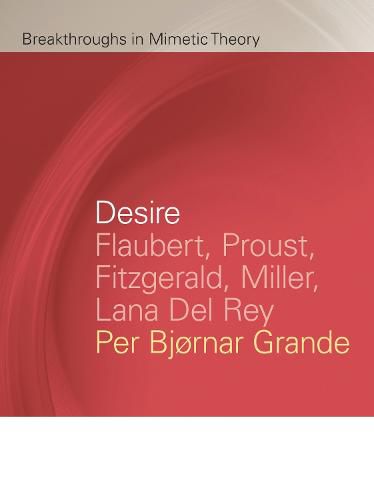Readings Newsletter
Become a Readings Member to make your shopping experience even easier.
Sign in or sign up for free!
You’re not far away from qualifying for FREE standard shipping within Australia
You’ve qualified for FREE standard shipping within Australia
The cart is loading…






Desire can take many forms. Hegel related desire to acceptance, Nietzsche to power, and Freud to the erotic. In novels and plays by Gustave Flaubert, Marcel Proust, F. Scott Fitzgerald, and Arthur Miller and music by Lana Del Rey, desire operates in a complex, slippery way that eludes philosophical and psychoanalytic attempts to pin it down.
These and other great works of literature corroborate Rene Girard’s understanding of desire as taking shape according to the other’s desire . The mimetic approach frees desire from the preconceptions of both subject- and object-oriented psychologies and puts literary criticism in touch with the concrete substance of fictional narratives.
Drawing on both modern masterpieces and iconic works of contemporary pop culture, Per Bjornar Grande sketches a Girardian phenomenology of desire, one that sheds new light on the frustrating and repetitive nature of human relations in a world of vanishing taboos.
$9.00 standard shipping within Australia
FREE standard shipping within Australia for orders over $100.00
Express & International shipping calculated at checkout
Desire can take many forms. Hegel related desire to acceptance, Nietzsche to power, and Freud to the erotic. In novels and plays by Gustave Flaubert, Marcel Proust, F. Scott Fitzgerald, and Arthur Miller and music by Lana Del Rey, desire operates in a complex, slippery way that eludes philosophical and psychoanalytic attempts to pin it down.
These and other great works of literature corroborate Rene Girard’s understanding of desire as taking shape according to the other’s desire . The mimetic approach frees desire from the preconceptions of both subject- and object-oriented psychologies and puts literary criticism in touch with the concrete substance of fictional narratives.
Drawing on both modern masterpieces and iconic works of contemporary pop culture, Per Bjornar Grande sketches a Girardian phenomenology of desire, one that sheds new light on the frustrating and repetitive nature of human relations in a world of vanishing taboos.